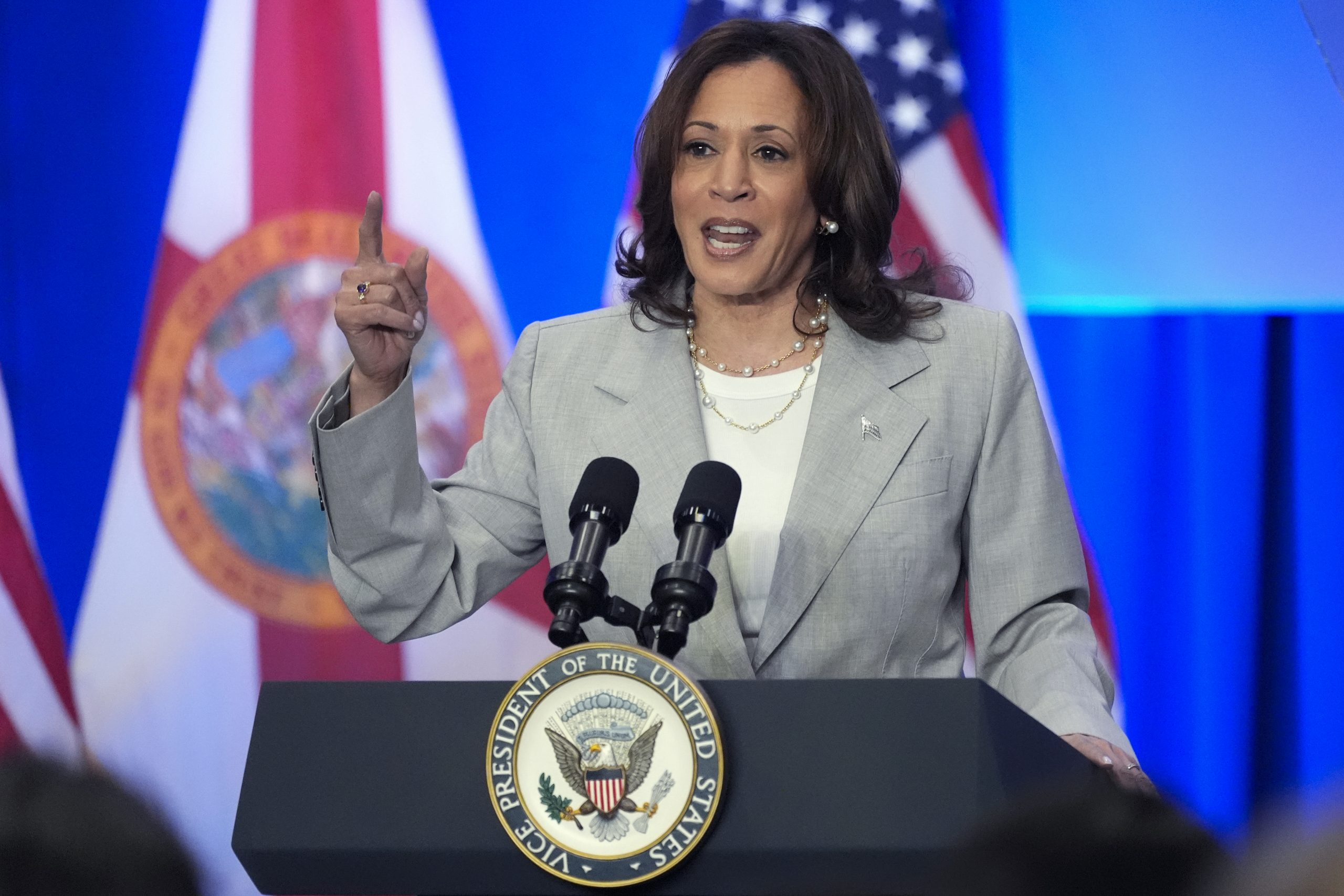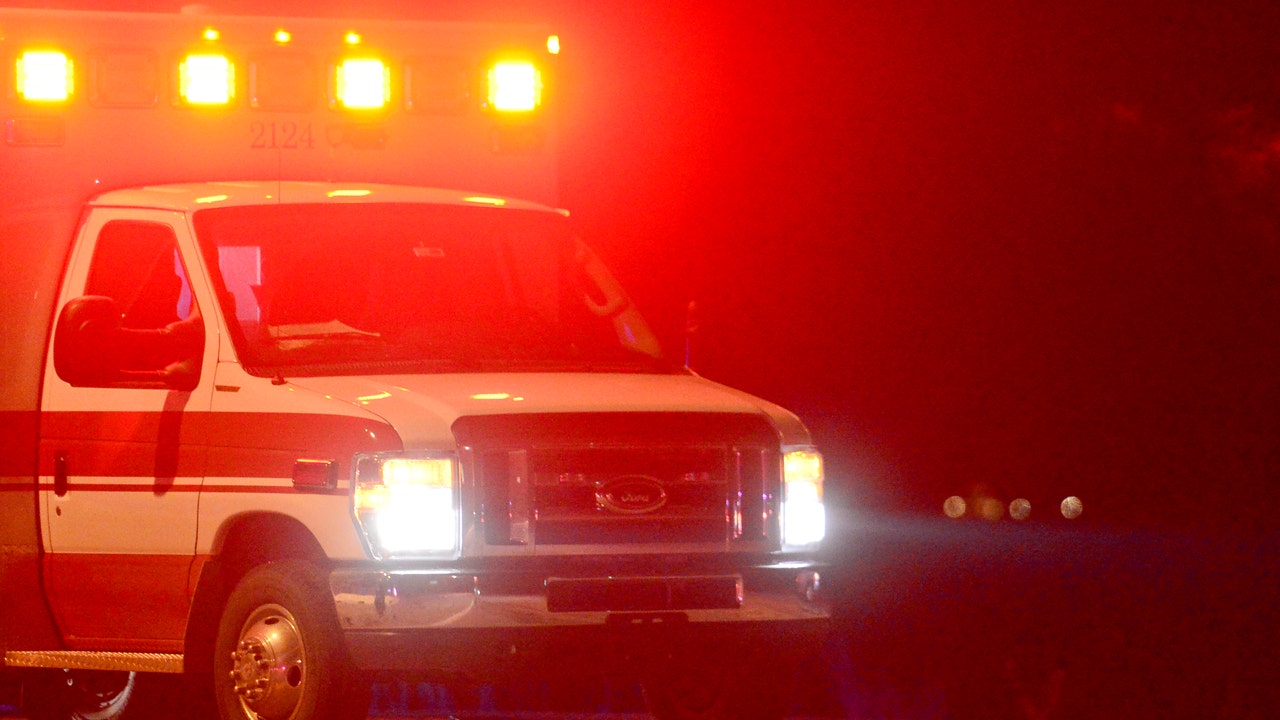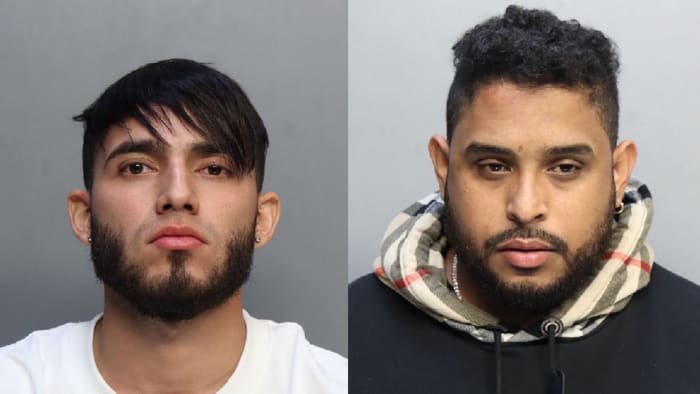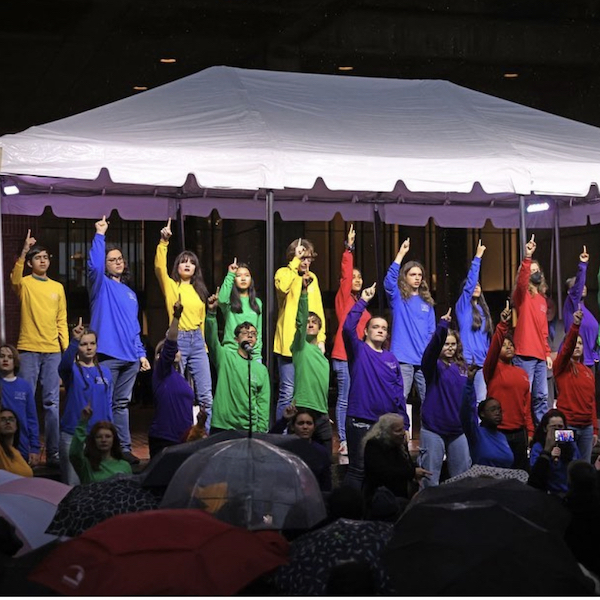Southeast
McNeese State EVP is named Louisiana school's next president
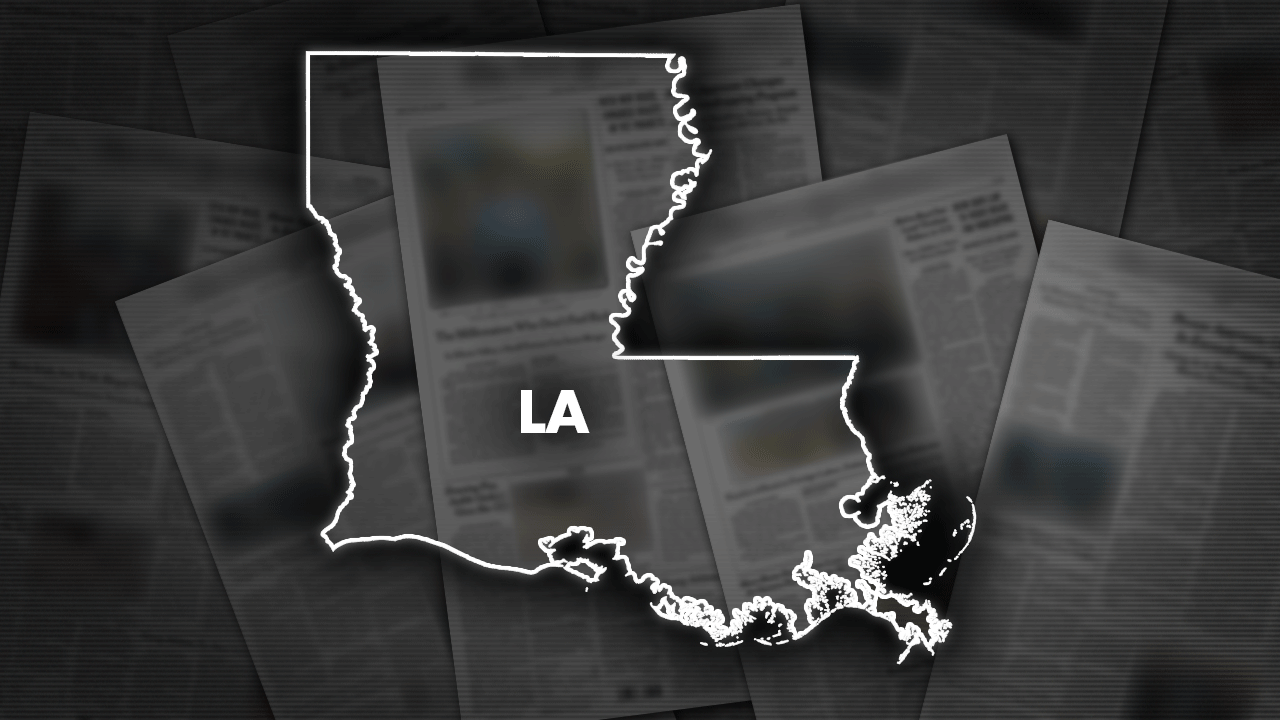
A new president has been named for McNeese State University in southwest Louisiana.
The University of Louisiana System announced Thursday that Wade Rousse will succeed Daryl Burckel, who announced in December that he was stepping down after seven years.
LOUISIANA DEMOCRATIC PARTY SELECTS NEW CHAIRMAN
Rousse currently serves as the university’s executive vice president. He has worked at the university since 2019 in various roles, including dean and professor in the College of Business and vice president of university advancement.
The University of Louisiana System has named Wade Rousse as the next president of McNeese State University. (Fox News)
The American Press reports that Rousse also has worked in administration at Northern Arizona University in Flagstaff. He was an undergraduate at McNeese before obtaining a bachelor’s degree in business from Nicholls State University, a master’s in business administration from the University of New Orleans and a Ph.D. in economics from the University of Illinois at Chicago.
Rouse’s starting date is to be negotiated with system President Rick Gallot and Board Chair Jimmy Clarke.
Read the full article from Here

Southeast
How teacher autonomy helps students and staff succeed at this top Florida school
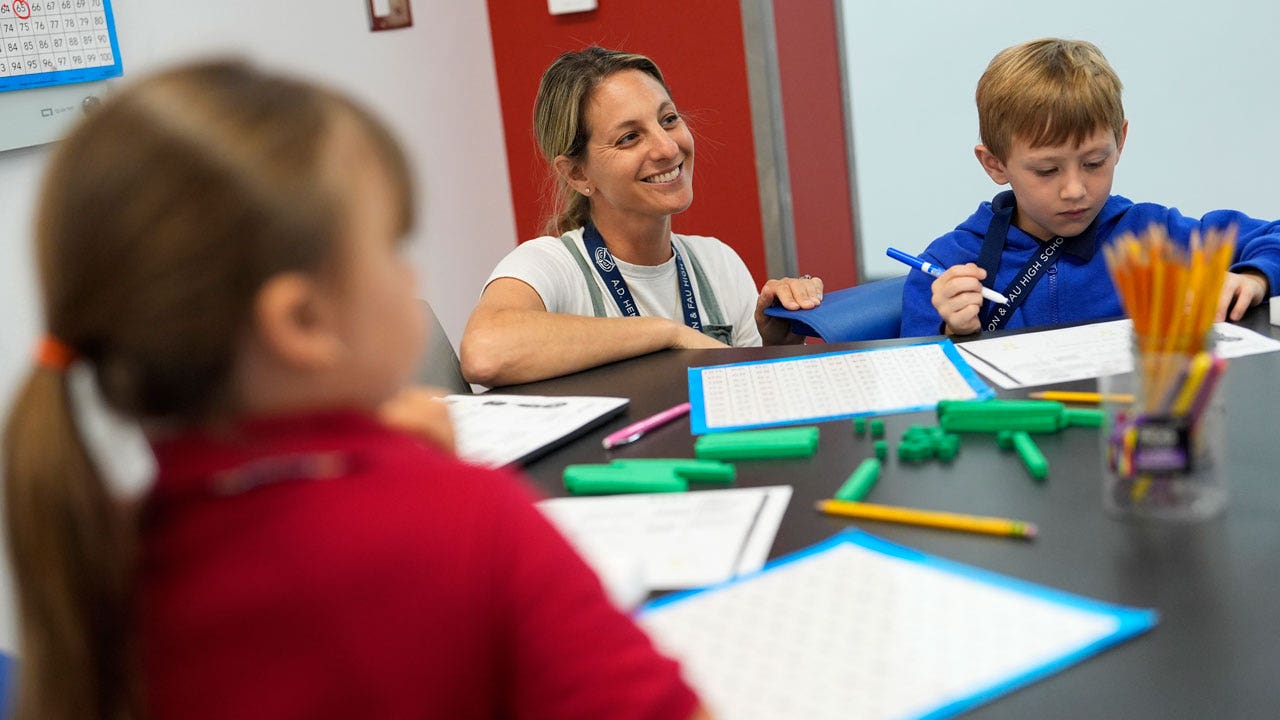
When teachers at A.D. Henderson School, one of the top-performing schools in Florida, are asked how they succeed, one answer is universal: They have autonomy.
Nationally, most teachers report feeling stressed and overwhelmed at work, according to a Pew Research Center survey of teachers last fall. Waning job satisfaction over the last two decades has accompanied a decline in teachers’ sense of autonomy in the classroom, according to a recent study out of Brown University and the University of Albany.
But at this South Florida school, administrators allow their staff high levels of classroom creativity — and it works.
CHICAGO TEACHERS’ $50B DEMANDS INCLUDE PAY HIKES, ABORTIONS, MIGRANT ACCOMMODATION
A public school of 636 kindergartners to eighth graders on the campus of Florida Atlantic University, Henderson scored in the top 1% to 3% in every subject and grade level on the state’s latest standardized tests, with the exception of sixth grade math, where students scored in the top 7%. In almost every subject, 60% or more of Henderson students score significantly above the state average.
“There is a lot of our own individual input allowed in doing the activities that we want to do in the classroom,” said Vanessa Stevenson, a middle school science teacher finishing her third year at the school. She plans to start an equine medicine class next fall even though the school has no stables — she believes she will find a way.
“It’s a bit of trial and error because there’s nothing being handed to you saying, ‘Do it this way.’ You just have to figure it out,” she said.
Math interventionist Jessica Foreman, center, works with a small group of first graders at A.D. Henderson School in Boca Raton, Florida, on April 16, 2024. Teachers at the K-8 public school, one of the top-performing schools in Florida, say their autonomy helps them succeed. (AP Photo/Rebecca Blackwell)
Joel Herbst, superintendent of Henderson and its sibling FAU High School, calls the faculty his “secret sauce” and argues the school’s success can be duplicated anywhere — if administrators cede some control.
When that happens, he said, teachers create hands-on programs that help students “not only show their understanding, but gain more depth.”
“Give (teachers) the freedom to do what they do best, which is to impart knowledge, to teach beyond the textbook,” he said.
Portland State University education professor Madhu Narayanan, who studies teacher autonomy, said independence has a high correlation to faculty morale and success. But autonomy must be paired with administrative support.
“It can’t be, ‘Here is the classroom, here is the textbook, we’ll see you in six months.’ Those teachers have tremendous autonomy, but feel lost,” he said.
‘THAT LITTLE SOMETHING EXTRA’
Henderson emphasizes science, technology and math, using arts and humanities to help with those lessons. About 2,700 families enter a lottery each year for the 60 spots in Henderson’s kindergarten class and openings in other grades. There is no screening — some children entering Henderson are prodigies, most are average learners and some have learning disabilities like dyslexia.
The only tweaking is to comply with a Florida law requiring the student population at university-run “laboratory” schools match state demographics for race, gender and income. Because families apply to attend, parental involvement is high — an advantage Herbst and his staff concede.
Selected kindergartners are tested months before arrival so any needs can be immediately addressed.
“Some of them come in reading and some know five letters — and it is not just reading, but all subjects,” said Lauren Robinson, the elementary program’s vice principal. “We are going to provide every opportunity to close those gaps before those gaps grow and grow, instead of waiting until a certain grade level and saying, ‘Now we’ll try to close them.’ It’s Day One.”
In Jenny O’Sullivan’s art and technology classroom, kindergartners learn computer coding basics by steering a robot through a maze. Fourth and fifth graders make videos celebrating Earth Day. Students learn design by building cardboard arcade games like Skee-Ball for their classmates. Legos teach engineering.
While her new classroom has the latest technology, she insists such classes can be taught anywhere if the teacher is allowed creativity.
“My grandmother is from Louisiana and there’s a (Cajun) saying: ‘Lagniappe,’ that little something extra,” O’Sullivan said. “I get to be the lagniappe in (the student’s) education. Could you do without it? Yes. But would you want to? No.”
Working in small groups while dressed in white lab coats and goggles, the sixth graders in Amy Miramontes’ Medical Detectives class solve a mystery daily. They have examined strands of rabbit muscle under a microscope, using safe chemicals to determine what neurological disease each animal had. They have tested fake neurotoxins to determine which ailments afflicted their imaginary patients.
Miramontes hopes the class not only piques the students’ interest in medicine, but implants knowledge needed in two years when they take the state’s eighth-grade science test.
“They’re always learning by having their hands on something,” Miramontes said. “If they mess up, it’s OK — we start over. But then we learn a great life lesson that we have to be very diligent.”
Marisha Valbrun, 12, took Medical Detectives because she might want to be a doctor. She’s learned that while science is challenging, by seeking assistance she can overcome obstacles.
“I feel like if I just ask any person in this room for help, they can give you that right answer,” she said.
USING ART TO TEACH SCIENCE
Even at a school where teachers exude enthusiasm, elementary art teacher Lindsey Wuest stands out — she can’t stand still while describing how her lessons center on science.
On this afternoon in her Science as Art class, Wuest and a visiting artist are showing third graders how to make clay bobblehead dolls of endangered species — while also teaching the chemistry of why glazes change color in the kiln.
“Hopefully those students who love art can also develop a love of science,” she said. “Project-based learning sticks with the kids for longer.”
Third grader Maximus Mallow said that by working on his leopard bobblehead, he learned how the animal’s camouflage works.
“We have fun while we create stuff about science,” the 9-year-old said.
Henderson’s success leads to grants — and nowhere shows that better than the middle school’s drone program, which recently won a national competition in San Diego.
Henderson’s drone teams have a room to practice flying the 3-inch-by-3-inch, four-rotor devices through an obstacle course, plus flight simulators donated by the local power company.
The drone program is a chance to compete while using the physics and aeronautics learned in the classroom, teacher James Nance said. While expensive equipment is a benefit, Nance said, drone classes can be taught on a shoestring. At a previous school, he made a flying course out of PVC pipe and balloons.
Eighth grader Anik Sahai pulls out his cell phone in Stevenson’s science classroom, an act at Henderson that usually means a trip to the office. But he is demonstrating an app he created that uses the camera to diagnose diabetic retinopathy, an eye disease that is a leading cause of blindness worldwide. It took first place in the state’s middle school science fair and is being considered for commercial use.
The 14-year-old credits his success to his years at Henderson, beginning in the preschool program.
“The teachers here, they’re amazing,” he said. “They’ve been trained on how to get us to the next level.”
Read the full article from Here
Southeast
Nathan Wade speaks out on 'workplace romance' with Fulton County DA Fani Willis: 'American as apple pie'
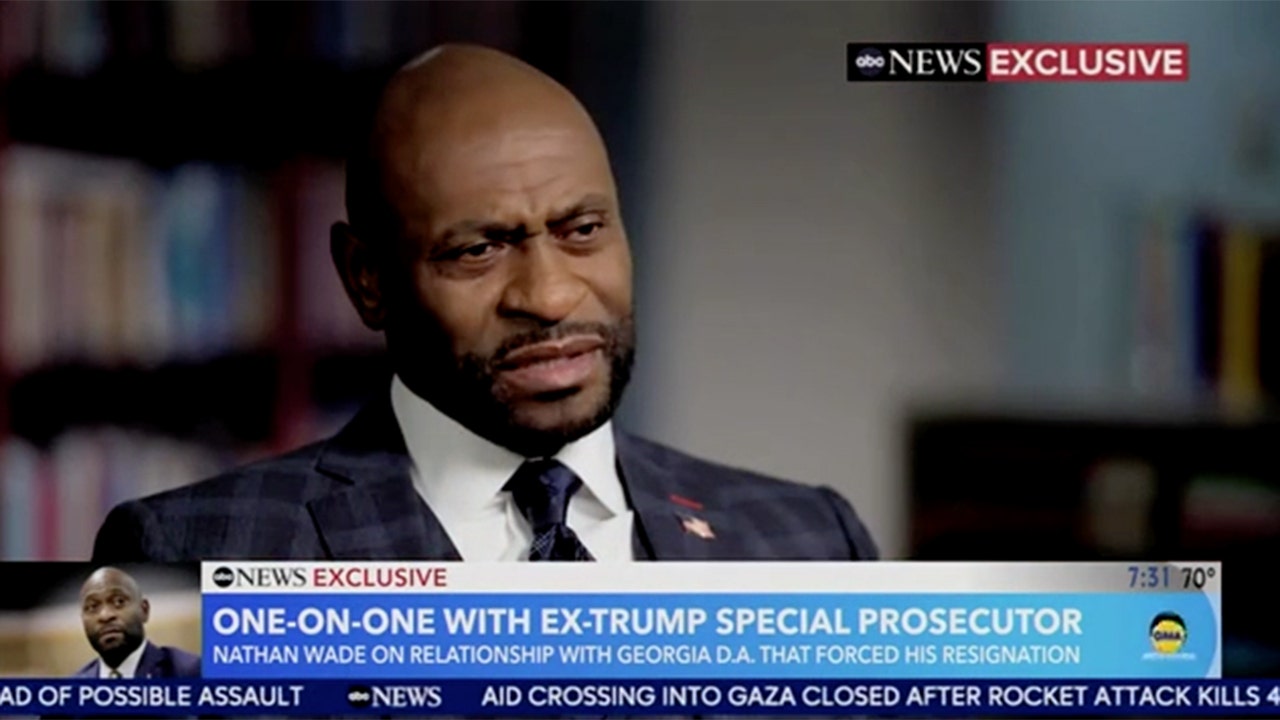
Former Georgia special prosecutor Nathan Wade broke his silence Monday about his “workplace romance” with Fulton County District Attorney Fani Willis, which he said was “American as apple pie.”
Wade spoke to ABC News’ Linsey Davis in his first media interview since resigning from the Georgia election interference case against former President Trump in March.
“Workplace romances are as American as apple pie,” Wade said in an interview that aired on “Good Morning America.” “It happens to everyone. But it happened to the two of us.”
Asked if he regretted the relationship, Wade said he did because it became the focus of the case. Their past romance and Willis’ defiant posture when confronted over the appearance of impropriety upended the case and alarmed even progressives.
JUDGE RULES FANI WILLIS MUST STEP ASIDE FROM TRUMP CASE OR FIRE SPECIAL PROSECUTOR NATHAN WADE
Former Georgie special prosecutor Nathan Wade spoke to ABC News in his first interview since resigning from the Georgie election interference case. (Screenshot/ABC)
“I regret that that private matter became the focal point of this very important prosecution,” Wade said. “This is a very important case.”
Davis also asked about why they didn’t consider making a statement about their relationship when it first started.
“My conversation here with you today is just that. It’s Nathan’s conversation. I do not speak for the district attorney’s office. I do not speak for their position. As a matter of fact, I am certain that they would rather me not be having this exchange with you. With that, I want to continue to protect the integrity of this prosecution. I don’t want to say or do anything that would jeopardize this case,” Wade said.
The former prosecutor asserted that he didn’t think the news of their relationship did any damage to the case.
Wade resigned from the case after Fulton County Superior Judge Scott McAfee ruled that either Willis or Wade had to remove themselves from the prosecution. Willis was accused of having an “improper” affair with Wade, whom she hired in 2021. Willis and Wade claim their relationship began in 2022, and Wade said their relationship ended in the summer of 2023, but they remained friends.
GEORGIA LAWMAKER DEMANDS FANI WILLIS STEP ASIDE IN TRUMP ELECTION CASE: ‘HER CREDIBILITY IS SHOT’
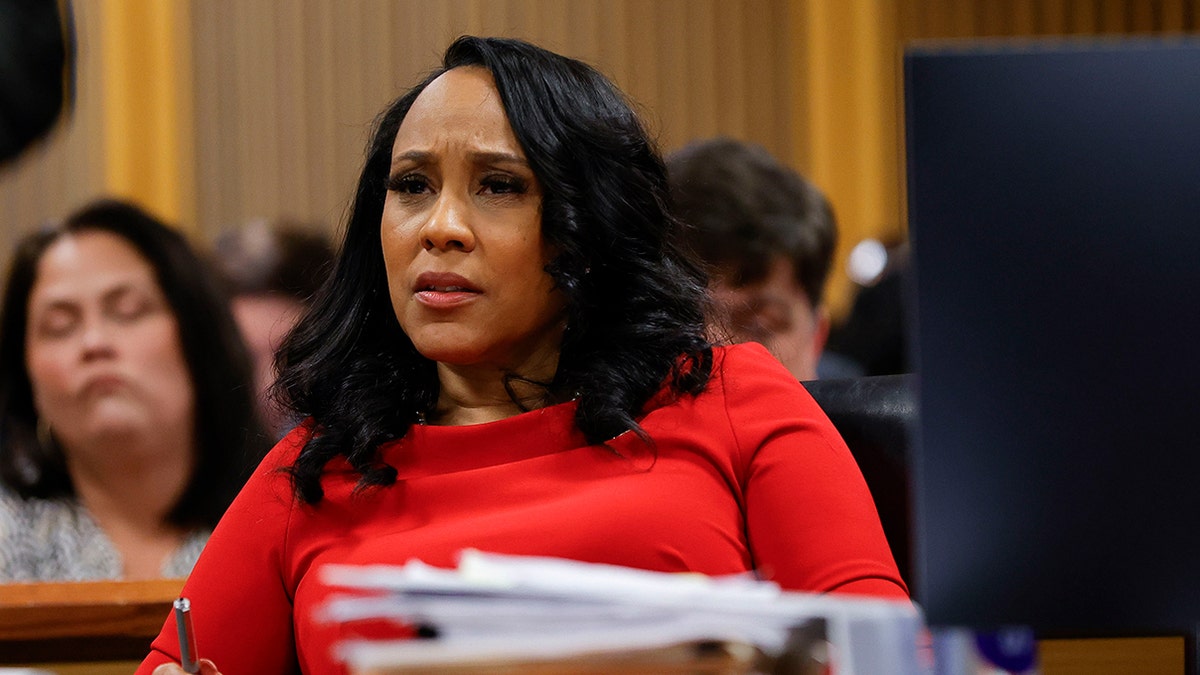
Fulton County District Attorney Fani Willis looks on during a hearing in the case of the State of Georgia v. Donald John Trump at the Fulton County Courthouse on March 1, 2024, in Atlanta. (Alex Slitz-Pool/Getty Images)
Willis said she doesn’t feel her reputation has been tarnished as she moves forward with her 2020 election interference case against Trump.
“I don’t feel like my reputation needs to be reclaimed,” Willis told CNN in March. “I guess my greatest crime is I had a relationship with a man. That’s not something I find embarrassing in any way. And I know that I have not done anything that’s illegal.”
Fox News’ Brie Stimson, Brianna Herlihy, Chris Pandolfo and Louis Casiano contributed to this report.
Read the full article from Here
Southeast
United Methodist Church abolishes LGBTQ bans, 'last of the major mainline groups to liberalize'
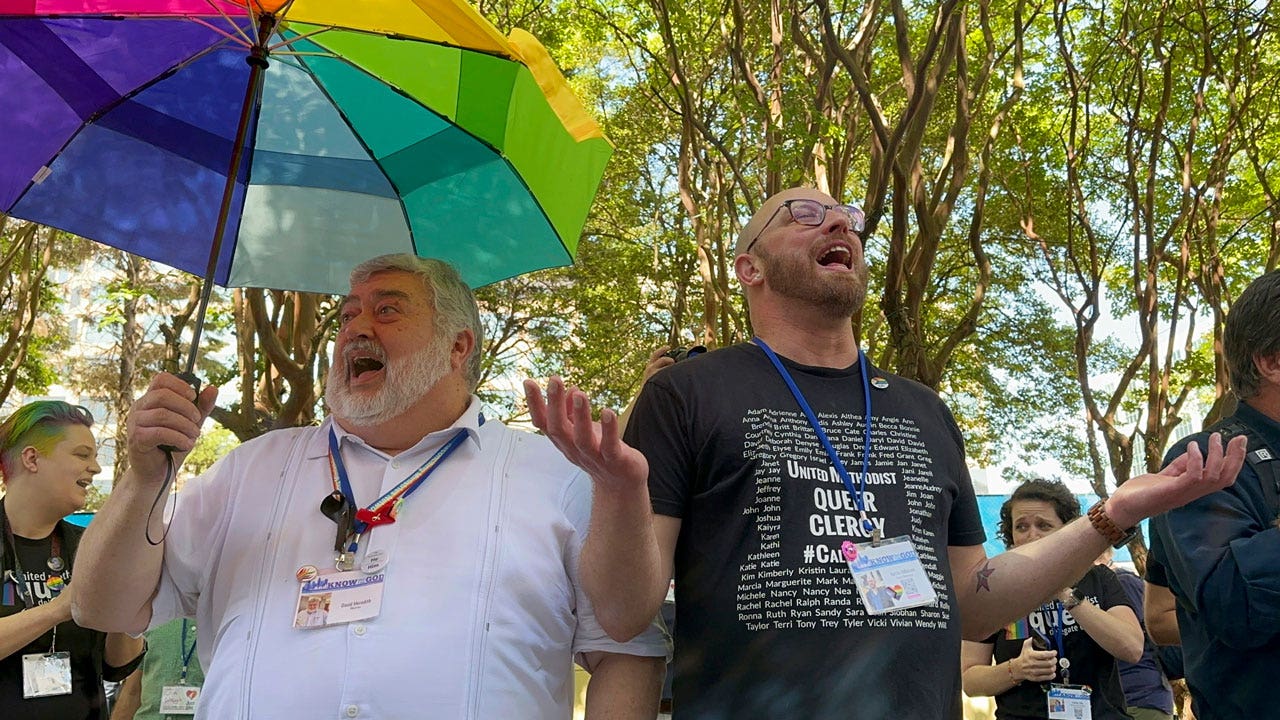
It took just a few days for United Methodist delegates to remove a half-century’s worth of denominational bans on gay clergy and same-sex marriages.
But when asked at a news conference about the lightning speed of the changes, the Rev. Effie McAvoy took a longer view.
“Oh, it didn’t take days, honey,” she said.
UNITED METHODIST CHURCH VOTES TO LIFT BAN ON LGBTQ CLERGY, MARKING HISTORIC POLICY SHIFT
It took decades of activism for a change that was “so very healing,” said McAvoy, pastor of Shepherd of the Valley United Methodist Church in Hope, Rhode Island. A member of the Queer Delegate Caucus at last week’s UMC General Conference in Charlotte, she was grateful to be part of the historic moment.
The reversals can be seen as marking the end of a half-century of epic battles and schisms over LGBTQ involvement — not only in the United Methodist Church but in U.S. mainline Protestant denominations overall. Those are the tall-steeple churches in myriad town squares and rural crossroads, traditionally “big-tent” and culturally mainstream congregations — some predating America’s independence.
The nation’s largest Methodist, Presbyterian, Episcopal and Lutheran denominations have all now removed barriers to LGBTQ participation in the pulpit and at the altar. But this comes amid long-term declines in membership and influence.
The Rev. David Meredith, left, and the Rev. Austin Adkinson, right, sing during a gathering of those in the LGBTQ community and their allies outside the Charlotte Convention Center, in Charlotte, North Carolina, on May 2, 2024. When the United Methodist Church removed anti-LGBTQ language from its official rules in recent days, it marked the end of a half-century of debates over LGBTQ inclusion in mainline Protestant denominations. (AP Photo/Peter Smith, File)
Surely there will be skirmishes to come. Individual congregations, and entire regions across the world, will sort out the implications. Controversies have grown among some conservative evangelical churches and colleges, which largely avoided past battles.
But for mainline Protestants, last week’s General Conference looks like a landmark. It was a relatively quiet coda to what had been an almost annual scene on America’s religious calendar — impassioned showdowns at legislative assemblies of Protestant denominations, marked by protests, political maneuverings and earnest prayers.
Across the decades, there were many cases of ecclesiastical civil disobedience — clergy doing ordinations and marriages that defied church bans, some of whom were tried for heresy or other infractions.
“A part of me still doesn’t believe it,” said the Rev. Frank Schaefer, one of the last United Methodist ministers to face church discipline after presiding at the same-sex wedding of his son. Schaefer was restored to ministry in 2014 by a Methodist appellate panel after a lower tribunal had defrocked him.
“We’ve fought for it so long and hard, and there were so many disappointments along the way,” said Schaefer, now a pastor in California. “Our tears have turned into tears of joy.”
But the UMC faces the same dire challenges as Lutheran, Presbyterian, Episcopal and smaller mainline denominations that took similar routes.
All lost large numbers of congregations in schisms, and they have had to navigate fraught relations with partner churches in Africa and elsewhere.
Retired United Methodist Bishop Will Willimon, a professor at Duke Divinity School, supported greater LGBTQ inclusion in the church — but said bigger issues loom.
“We’re an aging denomination,” he said. “We share that with so many mainline denominations. Unfortunately I don’t see how this vote addresses any of that.”
Willimon said even conservative breakaway groups like the new Global Methodist Church, comprised of many former UMC congregations, face similar challenges with predominately white, aging memberships.
In the U.S., mainline churches have lost millions of members since their peak in the 1960s — some to schism and many to underlying demographics. Their members are aging and don’t have many children, and they struggle to retain the children they do have, said Ryan Burge, associate professor of political science at Eastern Illinois University.
“There is no silver bullet” for reversing mainline decline, said Burge, who studies religious demographics.
The United Methodists counted 5.4 million U.S. members in 2022 — less than half their 1960s peak, and the recent departure of about 7,600 mostly conservative congregations will lower that number further. The Presbyterian Church (U.S.A.)’s 1.1 million membership is barely a quarter its 1960s peak. Other denominations have similar trends.
The mainline battles over LGBTQ issues began heating up in the early 1970s, before those initials were used.
A United Methodist General Conference in 1972 declared homosexual practice “incompatible with Christian teaching.” Other denominations issued similar teachings. Some imposed explicit bans on gay clergy.
An Episcopal bishop was tried and acquitted of heresy in 1996 for ordaining a gay pastor. The 2003 ordination of the first openly gay Episcopal bishop, Gene Robinson, ignited long-simmering controversies.
Conservative and liberal groups formed their own church caucuses for denominational legislative sessions, where Scriptures and slogans flew back and forth between proclamations of Robert’s Rules of Order.
Progressive Presbyterians blocked an entrance to a General Assembly in 2000 and were arrested. As the United Methodists steadily tightened LGBTQ bans, progressives disrupted General Conferences with protests, drums and songs. A conservative United Methodist leader, the Rev. Bill Hinson, roiled the 2004 General Conference in Pittsburgh with a call for denominational divorce — even though his side had won all its legislative battles.
“Why do we go on hurting each other?” asked Hinson. Others quickly tamped down the idea, but it was a foreshadowing.
By the second decade of the 21st century, Presbyterians, Lutherans and Episcopalians had largely dismantled their bans. They navigated major strains with partner churches elsewhere in the world.
Substantial minorities of their U.S. congregations joined more conservative denominations, saying the sexuality debates were symptoms of a deeper theological chasm.
The United Methodist Church is unique because it is international, with many delegates from countries with conservative sexual values and laws. A special legislative session in 2019 reinforced LGBTQ bans.
That result proved short-lived.
U.S. churches increasingly defied the bans and elected more progressive delegates for this year’s gathering. Many churches began disaffiliating under a temporary measure approved in 2019 that let churches keep their properties under favorable conditions.
To Willimon, that process was devastating. Whether the congregation stayed or left, peoples’ relationships were ruptured, he said.
Many churches went independent, but thousands joined the new Global Methodist Church, which pledges to enforce restrictions on LGBTQ clergy and same-sex marriage.
Now attention turns to Africa, where the UMC counts 4.6 million members.
One group of African delegates protested outside the General Conference and said their members would discuss whether to disaffiliate.
“The General Conference did not listen to us,” said the Rev. Jerry Kulah of the conservative group, Africa Initiative, contending the denomination departed from biblical teaching on marriage. “We do not believe we know better than Jesus.”
Bishop John Wesley Yohanna of Nigeria said he would likely leave the denomination after his term ends, though he is staying for now to help heal a rift in the local church. “From the tradition of the church in Africa,” he added, “marriage is between a man and a woman, period.”
But other African delegates are heartened by a plan that expands regional autonomy on such matters. They said African churches will keep the marriage and ordination bans in their region while remaining in the denomination.
“Our decision to stay in the United Methodist Church is not conditioned by what happens in America,” said the Rev. Ande Emmanuel of Southern Nigeria. “God has called us to a church, and the church is not a property of the United States.”
Bishop Eben Nhiwatiwa of Zimbabwe the majority of the African bishops at General Conference agree the regionalization plan respects local cultures.
The United Methodist Church was the last of the major U.S. mainline groups to liberalize its policies on sexuality in part because of its large presence in rural, small-town and Southern areas, where a more conservative sexual ethos prevails, said James Hudnut-Beumler, a professor of American Christian History at Vanderbilt University. He is a Presbyterian Church (U.S.A.) minister and co-author of “The Future of Mainline Protestantism.”
“That’s why they’re the last to go,” he said.
And it won’t automatically bring back the more-accepting younger generations who left over the bans, said Hudnut-Beumler, adding that conservative evangelical congregations are not exempt.
“Some conservative megachurch pastor may be thinking to himself, ‘We won this. Look what happened to the Methodists and Presbyterians and Episcopalians,’” said Hudnut-Beumler, “Don’t be so smug.”
Read the full article from Here
-

 News1 week ago
News1 week agoBoth sides prepare as Florida's six-week abortion ban is set to take effect Wednesday
-

 Politics1 week ago
Politics1 week agoGOP Rep. Bill Posey won't seek re-election, endorses former Florida Senate President as replacement
-

 World1 week ago
World1 week agoRussian forces gained partial control of Donetsk's Ocheretyne town
-
Movie Reviews1 week ago
Challengers Movie Review
-

 World1 week ago
World1 week agoZelenskyy warns of Russian nuclear risks on Chernobyl anniversary
-

 Politics1 week ago
Politics1 week agoHouse Republicans brace for spring legislative sprint with one less GOP vote
-

 World1 week ago
World1 week agoAt least four dead in US after dozens of tornadoes rip through Oklahoma
-

 Politics1 week ago
Politics1 week agoAnti-Trump DA's no-show at debate leaves challenger facing off against empty podium
